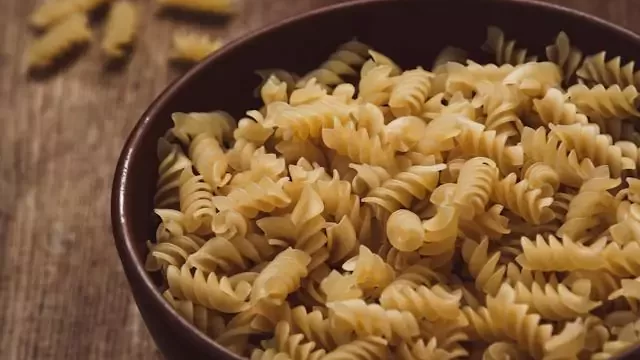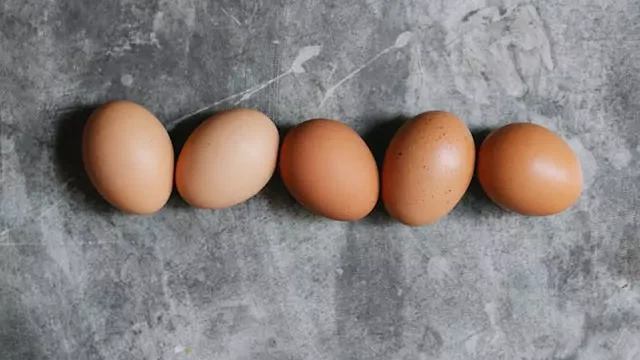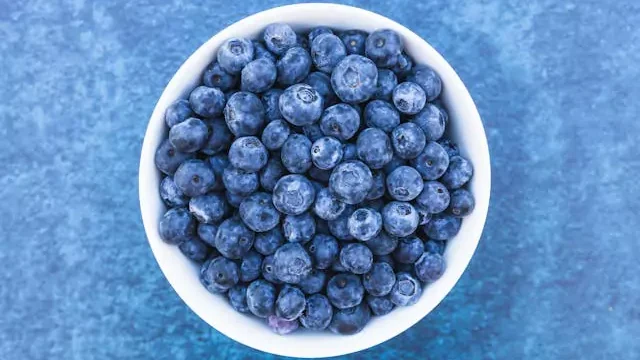Pasta, a staple food in Italian cuisine, is often perceived as a carb-laden indulgence that’s detrimental to a healthy diet. However, this perception couldn’t be further from the truth. When incorporated into a balanced and mindful eating pattern, pasta can offer a wealth of health and fitness benefits.
Pasta, made from durum wheat semolina, is a rich source of complex carbohydrates, providing sustained energy and keeping blood sugar levels stable. It’s also a good source of fiber, which promotes digestive health, aids in weight management, and helps lower cholesterol levels. Whole-wheat pasta, in particular, is packed with fiber and other essential nutrients, making it a superior choice to refined pasta.

Fueling Your Body with Complex Carbohydrates
Complex carbohydrates, unlike simple sugars, are digested slowly, providing a steady release of energy throughout the day. This sustained energy is crucial for maintaining focus, productivity, and overall well-being. Pasta’s complex carbohydrates are excellent fuel for athletes and active individuals, helping them perform at their peak and recover effectively.
Promoting Digestive Wellness with Fiber
Fiber is a crucial component of a healthy diet, playing a vital role in digestive health. Pasta, particularly whole-wheat pasta, is a rich source of fiber, which adds bulk to stool, promotes regular bowel movements, and prevents constipation. Fiber also feeds the beneficial gut bacteria, which contribute to a healthy microbiome.
Enhancing Weight Management with Fiber and Protein
Fiber and protein play a synergistic role in promoting weight management. Fiber helps you feel full and satisfied for longer, reducing the urge to overeat. Protein, on the other hand, aids in muscle growth and repair, which boosts metabolism and helps burn calories more efficiently. Pasta, especially when paired with protein-rich toppings like lean meats, fish, or beans, can be a valuable tool for weight management.
Lowering Cholesterol with Whole-Wheat Pasta
Whole-wheat pasta, due to its higher fiber content, has been shown to lower LDL (bad) cholesterol levels and raise HDL (good) cholesterol levels. This is because fiber binds to cholesterol in the digestive tract, preventing its absorption into the bloodstream. Regular consumption of whole-wheat pasta can contribute to a healthier cardiovascular system.
Incorporating Pasta into a Healthy Lifestyle
To reap the full health and fitness benefits of pasta, it’s essential to choose the right type and pair it with nutritious toppings. Opt for whole-wheat pasta whenever possible to maximize fiber intake. Additionally, focus on incorporating pasta into balanced meals that include lean protein, healthy fats, and plenty of vegetables.
Delicious Ways to Enjoy Pasta Healthfully
Pasta can be enjoyed in countless ways, allowing you to create a variety of healthy and satisfying meals. Here are some tips for incorporating pasta into a healthy diet:
- Choose whole-wheat pasta over refined pasta for enhanced fiber content.
- Pair pasta with lean protein sources, such as grilled chicken, fish, or beans.
- Add a variety of vegetables to your pasta dishes for added nutrients and fiber.
- Use healthy fats, such as olive oil or avocado, for dressings and sauces.
- Limit the use of processed meats, cheese, and heavy cream sauces.
Unveiling the Culinary Versatility of Pasta
Pasta is a versatile ingredient that can be transformed into a myriad of delicious and healthy dishes. From simple tomato sauces and pesto to elaborate seafood creations, the possibilities are endless. Here are some ideas for incorporating pasta into your culinary repertoire:
- Pasta Primavera: A colorful and nutritious dish featuring a medley of vegetables and a light sauce.
- Pasta Salad: A refreshing and satisfying meal for a picnic or potluck, packed with protein and fiber.
- Pasta Bakes: Hearty and comforting dishes that combine pasta with various toppings, such as meat, vegetables, and cheese.
- One-Pot Pasta: A convenient and flavorful option that requires minimal cleanup.
Embracing Pasta for a Healthier, Happier Lifestyle
Pasta, often unfairly maligned for its nutritional value, can be a valuable part of a healthy and balanced diet. With mindful choices and creative culinary approaches, you can enjoy the deliciousness of pasta while reaping its numerous health and fitness benefits.
Unveiling the Fitness Benefits of Pasta
Pasta is primarily composed of carbohydrates, which are the body’s primary source of energy. However, not all carbohydrates are created equal. Pasta is a rich source of complex carbohydrates, which are digested more slowly than simple carbohydrates, providing sustained energy without causing blood sugar spikes. This makes pasta an excellent choice for fueling workouts and replenishing glycogen stores post-workout.
1. Slow-Release Energy
Complex carbohydrates in pasta are broken down into glucose at a gradual pace, providing a steady stream of energy without causing the energy crashes associated with simple carbohydrates. This sustained energy release is particularly beneficial for athletes, helping them maintain peak performance throughout their training and competitions.
2. Abundant Fiber
Pasta, particularly whole-wheat pasta, is a good source of dietary fiber, a nutrient that plays a crucial role in digestive health, weight management, and overall well-being. Fiber helps regulate bowel movements, promotes satiety, and can even aid in weight loss by reducing overall calorie intake.
3. Essential Nutrients
Pasta provides a variety of essential nutrients that support both physical and mental health. These include:
- Manganese: Essential for carbohydrate metabolism and bone health.
- Selenium: An antioxidant that protects cells from damage.
- Iron: Crucial for oxygen transport and muscle function.
4. Versatility in Meal Planning
Pasta is a highly versatile food that can be paired with a wide range of healthy ingredients, making it a versatile addition to any fitness-focused diet. From protein-rich lean meats and fish to fiber-rich vegetables and heart-healthy fats, pasta can be seamlessly incorporated into balanced and nutritious meals.
Incorporating Pasta into Your Fitness Routine
To reap the full benefits of pasta for your fitness goals, consider incorporating it into your diet in the following ways:
- Pre-workout: Pasta provides sustained energy to fuel your workouts and prevent energy crashes. Choose whole-wheat pasta for added fiber and nutrients.
- Post-workout: Refuel your muscles and replenish glycogen stores with a pasta meal rich in protein and healthy fats.
- Regular meals: Include pasta in your regular meal plan alongside other nutritious foods, such as vegetables, lean protein, and healthy fats.
Related: High-Protein Meats to Help You Build Muscle
FAQs
Is pasta good for weight loss?
Yes, pasta can be part of a healthy weight loss plan. Whole-wheat pasta is high in fiber, which helps you feel full and satisfied, reducing the urge to overeat. Additionally, pairing pasta with protein and healthy fats can further promote satiety and aid in weight management.
Can pasta help improve heart health?
Yes, whole-wheat pasta may help lower LDL (bad) cholesterol levels and raise HDL (good) cholesterol levels, due to its high fiber content. Fiber binds to cholesterol in the digestive tract, preventing its absorption into the bloodstream.
How can I make pasta healthier?
The key to making pasta a healthier choice is to choose whole-wheat pasta over refined pasta. Whole-wheat pasta is higher in fiber, vitamins, and minerals than refined pasta. Additionally, pair pasta with lean protein sources, such as grilled chicken, fish, or beans, and plenty of vegetables. Avoid processed meats, cheese, and heavy cream sauces.
Can I eat pasta everyday?
While pasta can be part of a healthy diet, it’s important to enjoy it in moderation. Aim to limit pasta consumption to one or two servings per week.




